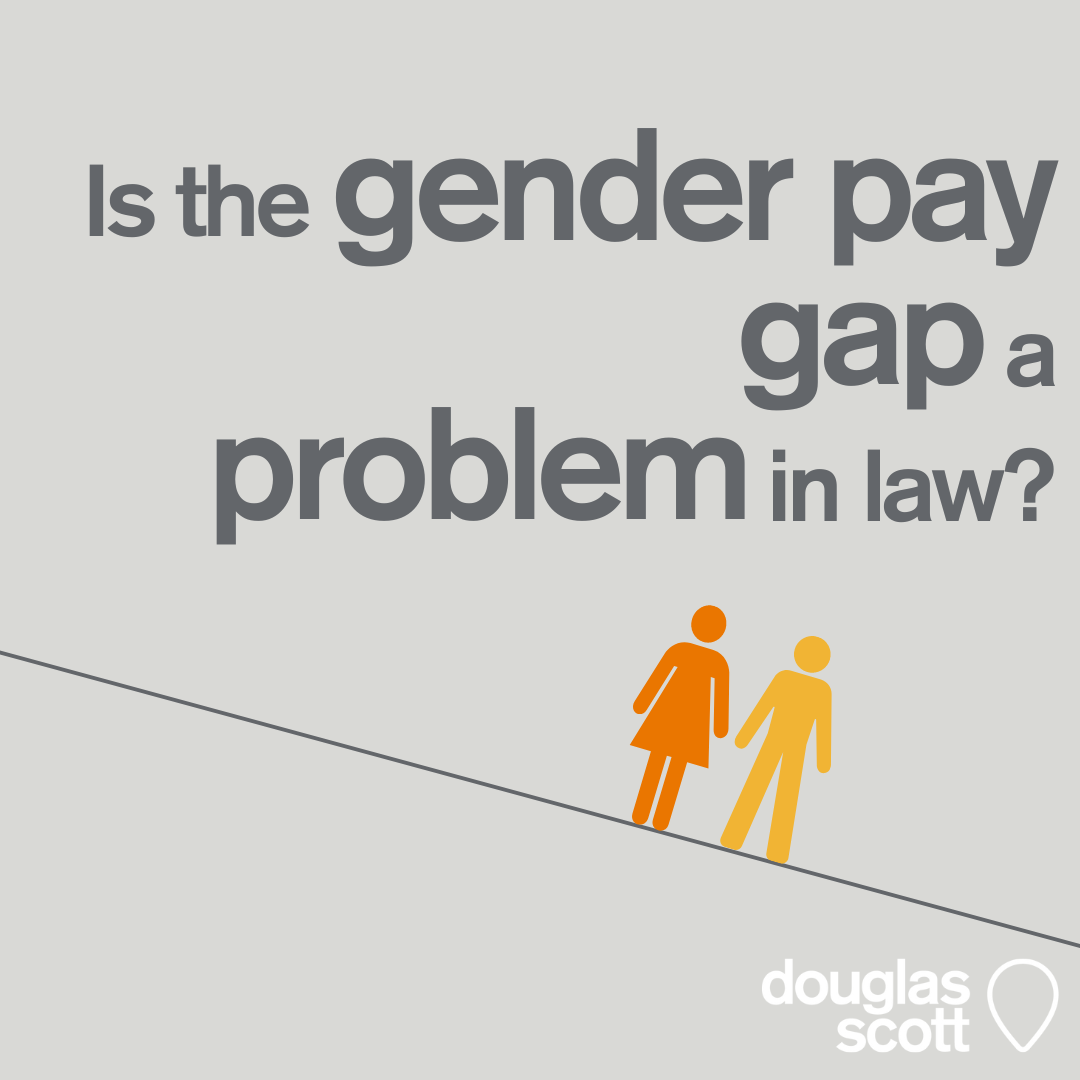Is the gender pay gap a problem in law?
Posted in Latest News on 9 May 2024

You may have seen stories in the news about the gender pay gap for barristers and judges being one of the biggest in the UK economy.
A report from the Office of National Statistics has shown that judges and barristers have the most significant gender pay gap in the country. We were interested in how this affects the wider legal market that we work with, so we looked at some of the data from our salary survey to see if we could spot any trends.
One of the questions we asked in our survey was whether people thought their salary was the market rate, which is often the best way to see if people are happy with their salary. Half of the female respondents to this year’s survey (52%) felt they were being paid the market rate for their role. However, 40% of people thought they were being paid under market rates, in sharp contrast to the 7% who felt they were being paid over the market rate. While this can’t be directly compared to the gender pay gap (after all, there may be plenty of other factors at play here), it could be that the higher numbers for women than overall might reflect a gap in the pay of men and women (for men, a slightly smaller number – 37% - felt that they were being underpaid, and a larger number – 10% - felt they were being paid over market rate). The number of women who had a pay rise in their current role is also an interesting point: while 55% have had a pay rise, equally 45% haven’t. A similar story seems to emerge in bonuses: 30% were expecting a bonus this year, while nearly 50% weren’t getting one (21% were unsure). Unlike with salaries, however, there was a broader trend across the market for people to not get a bonus, rather than just specifically one group.
What is particularly interesting is this seemingly hasn’t affected the satisfaction of those in law. For the most part, the women we surveyed for this salary survey were generally happy with their bonuses and jobs more broadly, despite many feeling they were being paid under market value. 40% of women were happy with their bonus – even though only 30% expected it this year. Only 16% were unhappy about their bonus, with 44% neutral about it. In terms of overall job satisfaction, 59% were happy in their jobs, in contrast to the 24% who were actively unhappy. Looking at whether people were likely to change jobs in the next six months, 48% weren’t looking to move roles, while another 28% were undecided. While salary issues might be affecting the market more broadly, it seems like this doesn’t significantly impact whether people are feeling satisfied in their roles, especially if firms are doing more to support their female employees. While it was the second most common reason for leaving a job role, only 12% of women left a job role for an increase in salary and benefits, so any gender pay gap issues are not having a significant sway on the market, according to these numbers.
Gender inequality is a huge issue, and it’s one that society has to face to achieve true equality. While the news about judges and barristers’ pay isn’t encouraging, it seems to be more of an isolated case than an endemic problem in law, at least according to our data. It’s a picture we will continue to monitor and report on, as there is much more to say about this topic and much more to accomplish.
Latest insight
-
What is the top priority for law firm leaders?
20 Jan 2025 -
How to make your 2025 Legal dreams come true!
13 Jan 2025 -
What poor mental health is costing firms...
13 Nov 2024 -
Beyond the surface: How law firms are quietly advancing social mobility
05 Nov 2024 -
Which training providers are doing the best out of the SQE?
29 Oct 2024